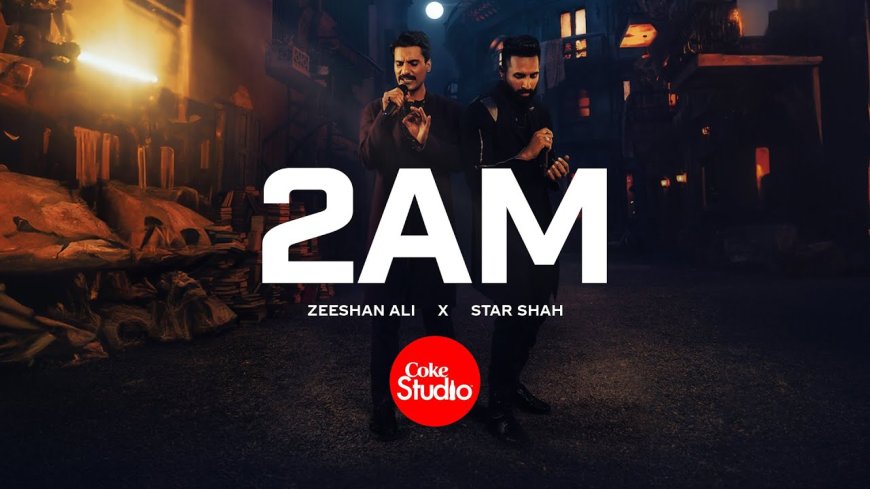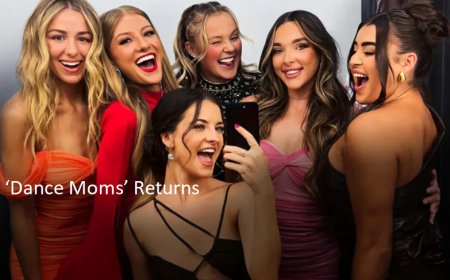Zeeshan Ali and Star Shah came at 2 AM at Coke Studio 15.
Coke Studio 15 is making sure that exceptional new talent will be the cornerstone of Xulfi's legacy.

I have always maintained and claimed that in order to challenge or alter any tradition, one must be at least somewhat anchored in it. This idea is brilliantly shown by Kaavish, who shows how people who were brought up in a traditional environment can represent something beyond sentimentality or carefully chosen items with their life experiences. In the era of streaming, Pakistan's independent music scene may be intense and vibrant, but it nevertheless faces a well-known identity dilemma. There are lots of anecdotes and cultural allusions to pull from, but without a strong anchor, music frequently only sounds catchy on the surface without having the depth needed to really connect with listeners.
Particularly with younger listeners, the idea of music that you can "vibe" with has become essential to our experience. According to a Gen Z fan I spoke with, it's the kind of music you want to "hang out with." True audience resonance, however, demands making music that speaks to the heart directly and endures beyond a single listen or a few listens at most (Pasoori aficionados may feel threatened).
Coke Studio 14 and 15 changed from a vibe to something that viewers would like to put on a shelf of introspective thoughts last Sunday at two in the morning. Zeeshan Ali and Star Shah are arguably the two most gifted people to have graced Coke Studio in recent years. They are so steeped in tradition that, in an instant, the essence of this single song can surpass the pretentious Sufi motifs and so-called "gehrayi" of the entire previous season.
2AM doesn't try to make things too complicated. Rather, it celebrates simplicity, akin to leisurely discussions that one may have at that hour—unless, of course, you happen to be in a fancy dhaba in DHA Karachi. 2AM transports listeners to the contemplative moments one might experience in a city rooted in its soil, like Androon Lahore or Qisa Khwani Bazaar in Peshawar, much like the masterful visual landscape created by director Awais Gohar and the art team that includes Sumaiyya Saeed, Lujane Pagganwala, Ather Amna & Waqas Ahmed.
This is a song that is pure honesty, with no hidden artistic or ideological agenda. Rather, it asks listeners to consider the veracity of love and imagine a society in which love is absolute. I also hope that allusions to Laila Majnu and sincere yearning for 'real love' don't prompt CS to go full Tu Jhoom and publish footage of Star Shah and Zeeshan Ali touching each other's feet in a spirit of reverence and delivering monologues on the depths of love and longing. That is so 2022, and it is obvious that it doesn't improve a song that is already nothing less than a musical colossus.
Star Shah often boasts on social media that he is a flawless rapper—a quality that is conspicuously absent from the modern rap landscape. What you don't have is someone who seems to have been born into the richness of Kaafi and tappay but has chosen hip hop as his medium for channeling what he has received from those Kaafis and tappay. Instead, you get melodic loops and alaaps inserted between adlibs and rap verses. See how Star Shah, who is so well positioned, was a prophecy waiting to happen by watching this little performance on his Instagram about how he used a touch phone to communicate with his father, who is no longer with him.
However, Zeeshan Ali is unquestionably the best voice in Pakistani music today. We've witnessed the enchantment he can create with both original and cover ghazals, as well as how effortlessly his voice elevates a jazz-rock song like Surkhwaab's Saanval. Zeeshan's rise to fame and recognition can only be attributed to his vocal prowess and how he has made a name for himself in the ghazal and geet realm as someone who can render pristine Urdu verses as effortlessly as the sweetness of folk Punjabi elocution. This is despite the fact that Zeeshan was largely discovered by Xulfi via Nescafe Basement.
Although Ali didn't previously require a platform like CS, under Xulfi's guidance, the hit show with catchy songs now has the much-needed vocal capability, breadth of idioms, allegories, and most significantly, swagger. Zeeshan Ali and Star Shah's combination is so effective because Ali mostly extends those high notes, which accentuate Shah's gentle landings like toast with warm butter. This season, "song narrative" is popular, much like "music directors" were under Strings. I don't know what it means in this context, but if it has anything to do with expressing feelings with assurance and confidence, then Xulfi and the million people who were duly given credit are deserving of all the praise.
It was once mentioned by a friend and colleague journalist that Faris Shafi is one of the great poets of the modern era. That brought back memories of telling an Urdu conference organizer that inviting rappers to language festivals is the only way to spark young people's interest in the language. They laughed it off, of course, but from a puritanical perspective, it will soon become a necessary evil or a professional necessity. Bravo to Xulfi for realizing that poets who can compose and perform their poems in a melodic continuity that sounds more like a distinct spoken word that spreads like music rather than Tehtul Lafz or Tarranum, nor does it sound like rap. Few people possess the talent to decipher the code that Zeeshan Ali and Star Shah have deciphered together!
What's Your Reaction?













































